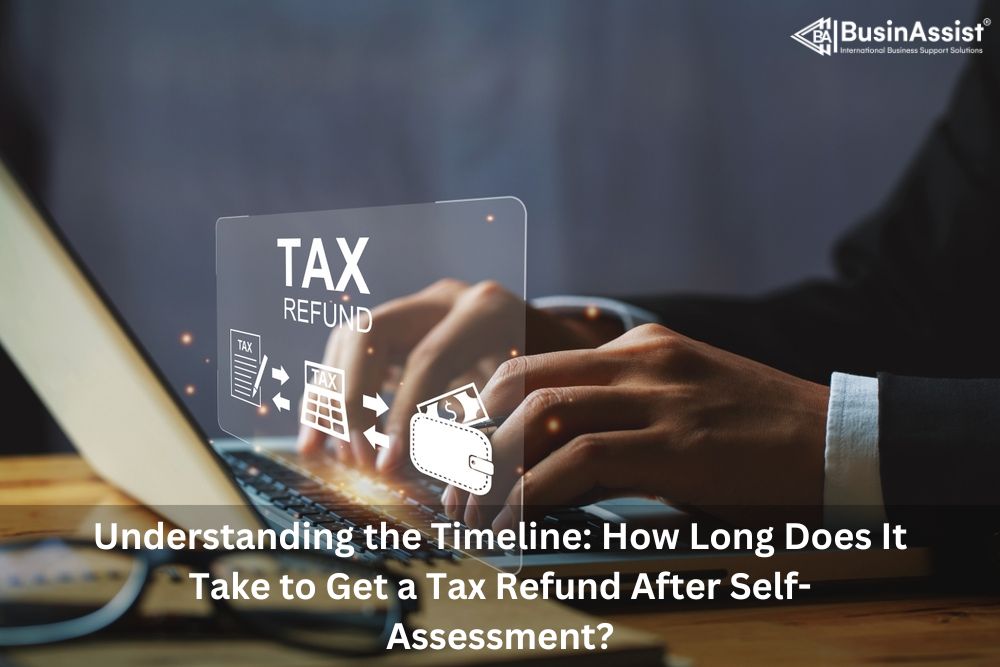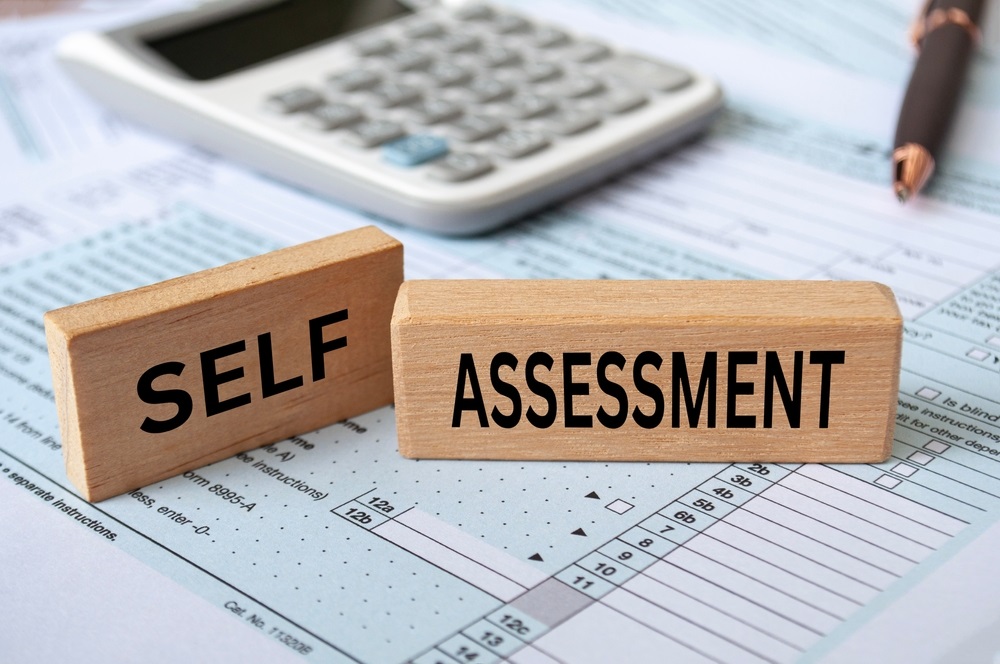Last Updated on December 18, 2025 by Joy Kyalo

Taxpayers who have made more payments are entitled to get refunds. How long does it take to get a tax refund after self-assessment depends on many factors like whether or not the return was done right, when it was sent in, the number of returns being assessed at once, and provided banking information among other things.
In this article, we shall explore the duration taken for one to receive a tax refund and the elements that affect its speed.
What is a Self-Assessment?

A Self-Assessment is a system used by HM Revenue and Customs (HMRC) in the UK to collect Income Tax. This is done by individuals who do not have income taxes deducted from their salary like:
- Individuals who are self-employed i.e. sole traders and freelancers.
- Company directors that do receive their pay without PAYE deduction.
- Landlords who get rent from tenements they own as a source of livelihood.
- Investors whose sources of income include dividends, savings, or capital gains.
- Individuals with high income: Who need to pay additional tax on savings or investments.
You report all of your earnings and profits through self-assessment, claiming any reliefs on tax deductions or tax credits available to you. Every tax year, you are required by law to submit your tax return indicating all income and expenses incurred which should be delivered directly to HMRC.
What is a tax refund?
A tax refund is the return of excess taxes paid to the government. That is when your tax bill is lower than what you have already paid throughout the year. To get a tax refund, you usually have to submit your return. This file shows your earnings, spending, and other important financial data to the government’s financial agency.
Refunds can come to a bank account by direct deposit, via cheque, or even by a prepaid debit card at times. Depending on whether one chooses electronic filing or mailing method of submission, and how fast the tax authority processes requests, it may take varying amounts of time to receive this money back.
How to know you are due for a tax refund?
You can determine if you’re due for a tax refund through several indicators:
HMRC notification: HMRC may send you a P800 tax calculation or a Simple Assessment letter if they believe you’ve paid too much tax.
Self-Assessment: If you complete a Self-Assessment tax return, you’ll see if you’re due a refund based on your calculations and HMRC’s assessment.
Payslips and P60: Check your payslips and P60 form to see if you’ve overpaid tax during the year.
Tax code: An incorrect tax code can lead to overpayment. If you notice an error, you might be due a refund.
Expenses and deductions: If you’ve claimed allowable expenses or deductions that reduce your taxable income, you might be eligible for a refund.
How will I get my refund?
Verify your eligibility: It is important to confirm your eligibility for a tax refund, which may arise from reasons such as overpayment of taxes, employment-related expenses, or other factors.
Receive a P800 or simple assessment notification: Should HMRC ascertain that you are entitled to a refund, they will issue a P800 or Simple Assessment notification. This document will detail the refund amount and the procedure for claiming it.
Submit your claim online: If your P800 notification permits online claims, you may utilize the online bank transfer service. You will require the reference number from your P800 notification along with your National Insurance number.
Utilise your individual tax account: Alternatively, you may submit your reimbursement application through your tax account which can be found on the HMRC website.
Adopt HMRC app: Another approach to apply for your refunds is through the acronym HMRC application.
Submit a payment order: If you would rather have a check, HMRC can generate one for you either online or by getting in touch with them personally.
Await processing: The processing time for refunds generally ranges from 5 days to 12 weeks, contingent upon the application method and any necessary additional verifications.
How can I avoid overpaying taxes?
To sidestep overtaxing oneself entails deliberate planning action and meticulous grasping of tax statutes. Herein are some tactics for assistance:
Amend your withholdings: Confirm that your employer withholds the right amount of tax from your salary. A new W-4 form can be filled out and given to your employer.
Monitor deductions and credits: Maintain comprehensive reports on every deduction and credit that could apply. Some common deductions include mortgage interest rates, charitable contributions as well as health expenses. Your tax burden could also be relieved by taking advantage of credits such as Earned Income Tax Credit (EITC).
Contribute to retirement accounts: Contributions to retirement accounts like a 401(k) or IRA can reduce your taxable income.
Review your tax situation regularly: Life changes such as marriage, having children, or buying a home can affect your tax situation. Regularly review and adjust your tax strategy accordingly.
Use tax software or a professional: Tax softwares can help you identify deductions and credits you might miss. Alternatively, a tax professional can provide personalised advice and ensure you’re not overpaying.
Stay informed: Tax laws change frequently. Stay updated on any changes that might affect your tax situation.
FAQs
Q: How long does HMRC take to refund the Self-Assessment tax?
Ans: HMRC generally requires a period of up to 12 weeks to complete the processing of Self-Assessment tax refunds. There may be a processing window of two to four weeks before the refund is credited back to the bank account. In case one chooses to receive the refund via a cheque, it may take about two weeks after processing for it to be delivered.
Q: Does HMRC automatically refund overpaid tax Self-Assessment?
Ans: It is true that HMRC refunds automatically any overpaid tax linked with Self-Assessment, however, some specifics must be taken into account. In general, HMRC is expected to auto-refund within a few weeks for Self-Assessments where taxpayers have paid more than their fair share of taxes. Nevertheless, if you have not received a refund and suspect that you are entitled to one, additional steps may be required.
Q: How do I claim my Self-Assessment tax refund?
Ans: To claim your Self-Assessment tax refund, visit the HMRC website and log in using your Government Gateway credentials. Once logged in, access your Self-Assessment account to verify whether you have overpaid your taxes. If an overpayment is present, you will have the option to request a refund. To proceed, select the refund request option, where you can choose to receive the funds directly in your bank account, via cheque, or as a credit towards future tax liabilities. Adhere to the on-screen instructions to finalise and submit your refund request, ensuring that all details are accurate to avoid any potential delays. Please note that the processing of your refund request by HMRC may take several weeks, especially if submitted close to the tax return deadline.
Q: Is Self-Assessment repayment the same as a tax refund?
Ans: Yes, a Self-Assessment repayment is essentially the same as a tax refund. When you overpay your tax through Self-Assessment, HMRC will refund the excess amount to you. This process is often referred to as a tax refund or tax repayment.
Q: What is a refund transfer on my tax assessment?
Ans: A “refund transfer” on your tax assessment typically means that HMRC has applied part or all of your tax refund to another debt you owe.
Read Also:
- What Are the Disadvantages of a Dormant Company?
- Everything You Need to Know About Companies House Default Address
- Self-Employed or Limited Company? A Guide for Small Business Owners
- What Happens if You Make a Mistake on Your Tax Return UK: A Comprehensive Guide
- How to Fill Out a Stock Transfer Form J30: A Step-by-Step Guide
- What is a Tax Office Reference Number and How Can I Find It?
- Can HMRC Access Your Bank Account? What Every Taxpayer Should Know
- What is an SA401 Form and How to Submit It to HMRC: A Complete Guide
- Do I Have to Pay Tax on Money Transferred from Overseas to the UK? Everything You Need to Know

The BusinAssist Editorial Team has 15+ years of experience writing about small business and company formation in the UK, Canada, and the USA. We simplify complex processes and provide practical insights to help entrepreneurs succeed. Business Assist with BusinAssist – your partner for business success.